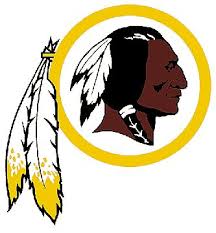
The Supreme Court has refused to hear a case brought by Native American activists regarding the use of the trademark name Redskins for the Washington-based football team. This case involved a long running dispute over the name that is several decades old. The activists claim:
“[T]he Washington Redskins’ team name is so offensive that it does not deserve trademark protection.”
The decison, which happened without comments, lets stand the lower court decision that the complaintants let the case go too long before bringing suit. The Washington Redskins have been named as such since 1937 when the name was changed from the Boston Braves, when the team moved south.
According to the Washington Post:
The lawsuit was filed in 1992, when seven activists challenged a Redskins trademark issued in 1967. They won seven years later in a decision by the Trademark Trial and Appeal Board, which said the name could be interpreted as offensive to Native Americans. The case is Harjo v. Pro-Football, Inc.
Trademark law prohibits registration of a name that “may disparage . . . persons, living or dead, . . . or bring them into contempt, or disrepute.”
The team appealed to federal court.
Judges at the district and circuit levels said the activists’ trademark cancellation claim was barred by the doctrine of laches, which serves as a defense against claims that should have been made long ago.
The activists argued that disparaging trademarks can be challenged at any time, citing a decision from the U.S. Court of Appeals for the 3rd Circuit. The decision was written by then-judgeSamuel A. Alito Jr., who now sits on the Supreme Court.
Apparently the rest of the world disagrees with the activists. There will always be someone who doesn’t like a team name or mascot. This seems like a frivolous lawsuit to me, especially when a team name is held in high esteem.

 Today the Supreme Court handed down its decision in Citizens United vs. Federal Election Commission which overturned a hundred years of campaign finance laws, including part of the McCain FeingoldAct. Corporations and Unions can now spend money directly on the support of candidates. According to Michael Waldman of the
Today the Supreme Court handed down its decision in Citizens United vs. Federal Election Commission which overturned a hundred years of campaign finance laws, including part of the McCain FeingoldAct. Corporations and Unions can now spend money directly on the support of candidates. According to Michael Waldman of the 
